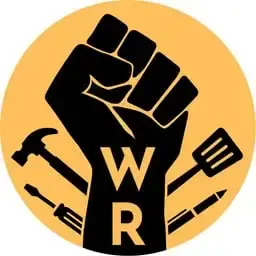“Inalienable Rights: Part I The Basic Argument” Against the Employer-Employee System and for Workplace Democracy
https://www.ellerman.org/inalienable-rights-part-i-the-basic-argument/
This article discusses how the contemporary system of labor relations treats employees as things rather than persons thus denying their humanity, and violating rights they have because of their personhood. Instead, work should be democratically controlled by the people doing it


Since workers were born into a world that affirms private property, they obviously never gave it their consent.
It is just a fiction that developed its own life by the whip, blade, and gun, and also by the pen and press.
Most of the work of leftist criticisms has been simply deconstructing entrenched doctrine, to help expand consciousness, and to build capacity for liberation.
Ellerman seems to prefer instead constructing his own layer of obfuscation. It may antagonize the wage system, but it declines to deconstruct the deeper nature of moral ideals, social constructs, and legal frameworks.
It is worth becoming familiar with leftist criticisms of natural rights.
The capitalist account is that wage labor is voluntary by any legally usable standard. Even if elevated standards of voluntariness could be made coherent and legally usable, a UBI would resolve such critiques; therefore, they are not per se critiques of capitalism.
What specific layer of obfuscation are you referring to? What specific criticism of natural rights do you have in mind? I have read many criticisms of natural rights, but none of them seem to apply Ellerman’s particular formulation
Private property is a construct.
Natural rights is a construct.
Neither represents a transcendent truth.
The best account for natural rights is that it provides elegant packaging for values and norms already shared. The danger emerges because whoever controls the packaging is the one who also determines what becomes elegantly packaged.
In a sense, all ethics are constructs of our minds. If this were grounds to reject human rights (it isn’t), it would be a reason against any reason to do anything (e.g. abolish capitalism) including egoism. The transcendent truth about ethics is unknowable. The best we can do is build moral theories on appealing moral principles.
Inalienability is a theory not merely a catalogue of personal views. Hegel’s inalienability critique of slavery shows this with nonsense added to not attack wage labor
No one is rejecting human rights in the sense you are suggesting, but some may object to human rights in the sense of its being merely a packaging for norms and values that are generally shared, as would be the same sense of an objection against moral theories.
Ellerman appears to be rejecting private property by replacing it with a construct designated as inalienable responsibility. He assumes we will accept the construct, but ultimately, he gives us no reason more convincing than that it affirms the conclusion he wishes to uphold, and that he assumes we will want him to reach, of equitable relations of production.
Ultimately, there is little to be remarked about one or the other, except whose interests they serve, or which consequences they produce.
The rulers’ function has been to repress workers.
The workers’ struggle has been to protect each other while seeking to overcome the conditions of oppression. In that, I see no need for us of either particular construct, private property or inalienable responsibility.